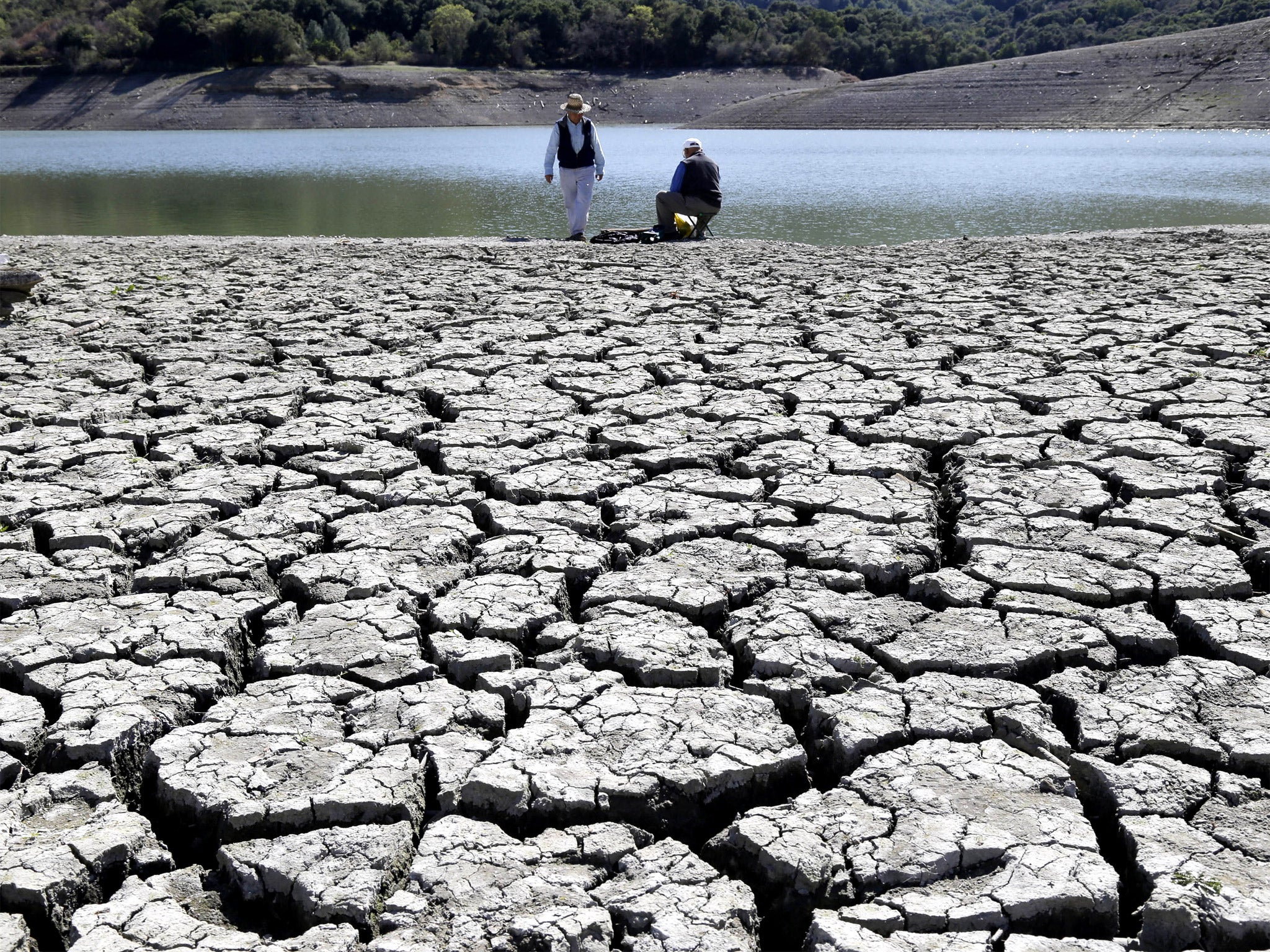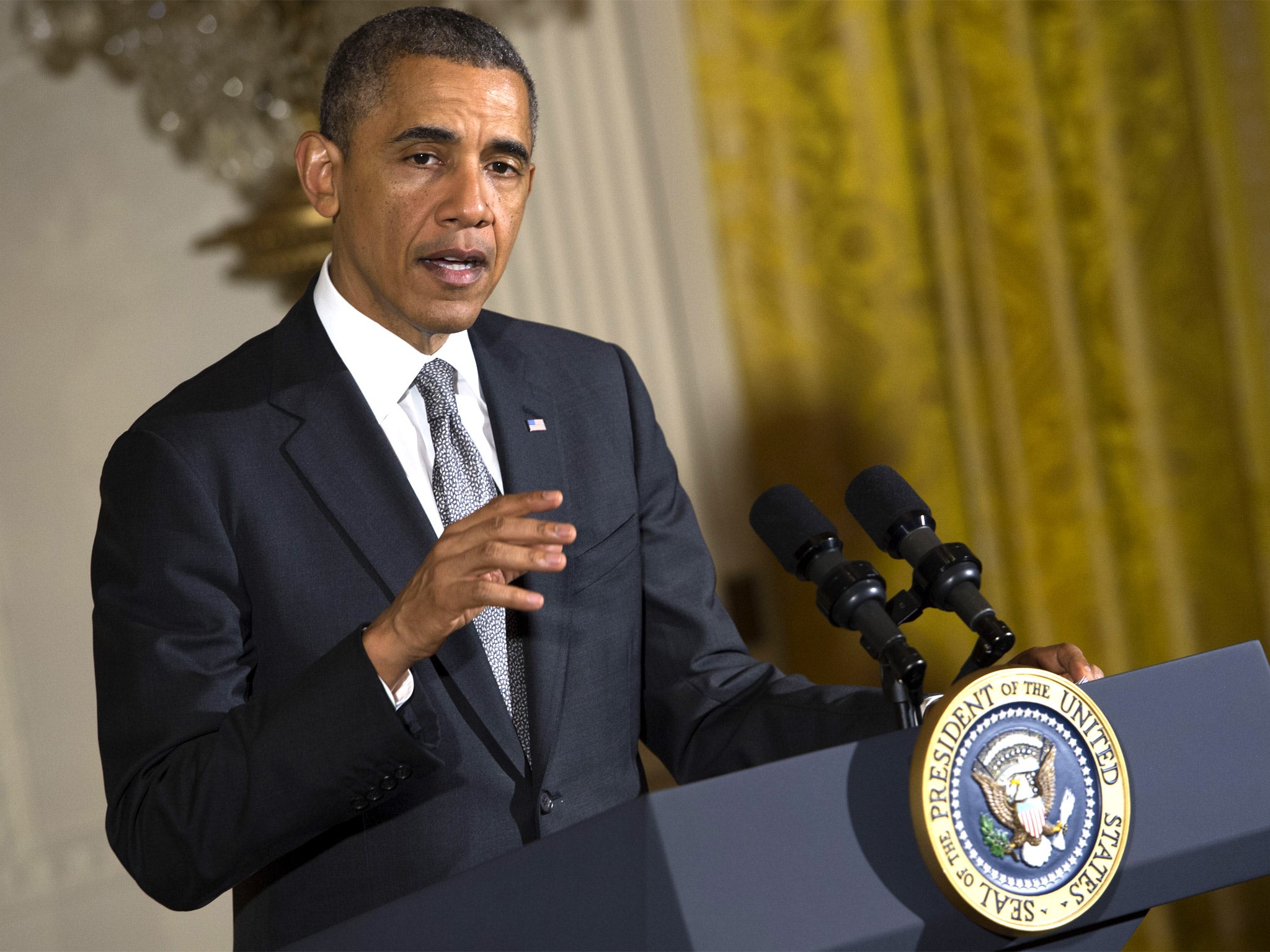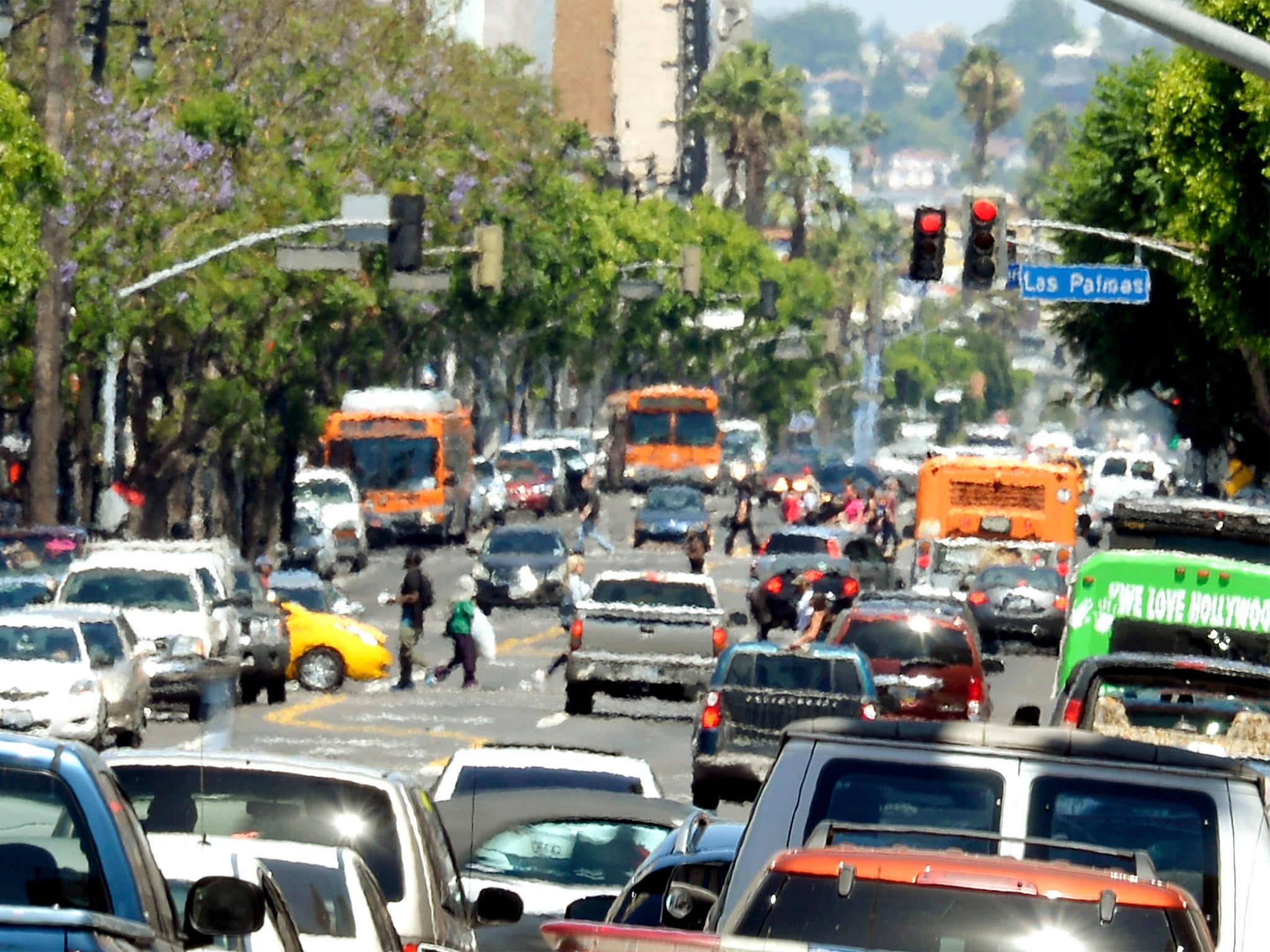America’s wake-up call: ‘Climate change, once seen as issue for the future, has moved into present’
Heat waves, wildfires, torrential rains – the Obama administration warns the people of the United States, particularly those on the right, that climate change is already here, and it’s almost too late to act

The malign impact of man-made climate change – denied by many on the American right – is already being felt by the United States, according to a sobering new report published by the Obama administration.
The National Climate Assessment, released by the White House on Tuesday, calls for an urgent curb on man-made emissions to tackle worsening heat waves, wildfires, torrential rains and other extreme weather events, and lays out in plain English the everyday consequences of climate change for average Americans. “Climate change, once considered an issue for a distant future, has moved firmly into the present,” the report explains.
“Corn producers in Iowa, oyster growers in Washington State and maple-syrup producers in Vermont are all observing climate-related changes that are outside of recent experience. So, too, are coastal planners in Florida, water managers in the arid South-west, city dwellers from Phoenix to New York and native peoples on tribal lands from Louisiana to Alaska.”
The 800-page report, compiled by a group of more than 240 scientists, outlines the region-by-region impact of climate change on food production, water supply and public health. “Summers are longer and hotter, and extended periods of unusual heat last longer than any living American has ever experienced,” the report says. “Winters are generally shorter and warmer. Rain comes in heavier downpours. People are seeing changes in the length and severity of seasonal allergies, the plant varieties that thrive in their gardens, and the kinds of birds they see in any particular month in their neighbourhoods.”
The assessment found that the decade from 2001 to 2012 was the warmest on record in the US. Heat waves, already the country’s biggest cause of weather-related deaths, are expected to intensify and spread. The amount of rainfall from extreme weather events has increased by as much as 71 per cent in the North-east. According to the report, sea levels have risen by 8in since 1880, and will rise by between 1ft-4ft before 2100, threatening the homes of around 5 million people who live close to the high-tide level on the US coastline. Certain diseases have become more prevalent due to decreased air quality, and the report also blamed climate change for a devastating outbreak of mountain pine beetles in the forests of the American West.

The average US temperature has increased by less than two degrees Fahrenheit since the end of the 19th century, with most of that increase occurring since 1970. But the report warned that temperatures could go up by as much as 10 degrees Fahrenheit during the 21st century if greenhouse-gas emissions continue to expand at their current pace. In recent years, the US has been overtaken by China as the world’s biggest single producer of fossil-fuel emissions, but its emissions per capita remain more than double those of the Chinese.
The National Climate Assessment addresses head-on the most politically controversial aspect of climate change: whether it is man-made. The report states that new and varied items of evidence “confirm that human activities” have contributed to climate change, in particular emissions from the burning of fossil fuels. According to satellite data cited in the assessment, solar activity and volcanic eruptions have had little or no effect on climate change, while the report attributes a recent “pause” in global warming to “cyclic changes in the oceans and in the sun’s energy output”.
In 1990, Congress mandated a major scientific report on climate change be published every four years, but only two such assessments have been compiled before now, in 2000 and 2009. This week’s assessment was approved before its publication by a committee including representatives from two major oil companies, government departments, the National Academy of Science and Nasa. President Obama was expected to grant interviews to national and local television weather forecasters, in a bid to publicise its findings.

At a press conference in Washington DC, John P Holdren, the President’s science adviser, said the National Climate Assessment was “the loudest and clearest alarm bell to date” on climate change in the US. The White House counsellor John Podesta told reporters that the assessment contained “a huge amount of practical, usable knowledge that state and local decision-makers can take advantage of as they plan on or for the impacts of climate change.”
In February, the US Department of Agriculture introduced a series of so-called “climate hubs”: networks to connect farmers to universities, industry groups and government agencies, so they can better prepare for climate-related events such as drought and flooding. The administration intends to use the new report to bolster support for Mr Obama’s Climate Action Plan, set out last year, which calls for new regulations to curb polluters, and the establishment of a $1bn (£590m) “climate resiliency fund” to finance preparations for the effects of continued climate change. The report claims that in 2012 alone, climate and weather disasters cost the US more than $100bn.
However, many Republicans oppose the President’s plan, saying it will damage the US economy. “Instead of making the environment drastically better, the President’s strategy will make the climate for unemployed Americans even worse,” said Senator John Barrasso of Wyoming. The Heartland Institute, a conservative think-tank that is sceptical of man-made climate change, said that the National Climate Assessment “consistently reaches overly pessimistic conclusions”.
Join our commenting forum
Join thought-provoking conversations, follow other Independent readers and see their replies
Comments
Bookmark popover
Removed from bookmarks